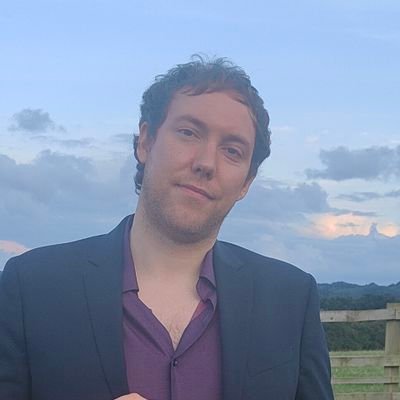Government strikes last minute deal over extended Windows XP support
UK government secures another year of support for public sector systems running Windows XP


A deal between the UK government and Microsoft has secured a further 12 months of Windows XP support for the public sector.
This last minute arrangement, worth 5.548m to Microsoft, sees the software giant agree to support systems running Windows XP, Office 2003 and Exchange 2003 across the breadth of central and local government organisations. This includes the reported 1 million devices running Windows XP throughout the NHS in England.
Analysts predict many UK organisations still use Windows XP and are not likely to cease doing so when Microsoft stops supporting it on 8 April.
Gartner vice-president and distinguished analyst Michael Silver said: "Almost every organisation will have some XP left - there's lots of Windows 95 running in hospitals, for example. But overall, when support ends, we estimate that 20-25 per cent of enterprise systems will still run XP and one third of enterprises will have more than 10 per cent of their systems remaining on XP."
However, the Government's deal stipulates its organisations must have a robust plan to migrate away from Microsoft's end of life software within a year. This means a flurry of upgrade activity can be expected throughout the public sector over the coming months.
Analyst house TechMarketView claims the UK Government has done well to secure extended support after its US counterparts failed to negotiate a similar agreement with Microsoft.
However, the market watcher also wants to know why the Government left it so late.
Get the ITPro daily newsletter
Sign up today and you will receive a free copy of our Future Focus 2025 report - the leading guidance on AI, cybersecurity and other IT challenges as per 700+ senior executives
"UK government organisations will have known about the April 2014 deadline for more than six years," said Georgina O'Toole, research director at TechMarketView.
"The need for such a deal calls into question why so many government organisations have failed to act at a time when cyber threats are on the increase. Budget cut pressures? Poor IT management? Problems due to bespoke software being built for XP? The clock has started ticking all over again."
Public sector organisations will now have the option to upgrade to Windows 8.1, the latest Microsoft desktop operating system.
So far adoption of Windows 8 and 8.1 has not been prolific in both the public and private sectors.
IBM company Fibrelink extracted data from over 1 million desktops and laptops and found that less than 1 per cent use Windows 8. Meanwhile, a recent Spiceworks survey of IT professionals revealed only seven per cent plan to upgrade their current operating systems to Windows 8.
Spiceworks also found that 76 per cent of IT professionals currently run Windows XP on some devices and of those, 36% will leave Windows XP on at least one device when it enters end of life.
Roland is a passionate newshound whose journalism training initially involved a broadcast specialism, but he’s since found his home in breaking news stories online and in print.
He held a freelance news editor position at ITPro for a number of years after his lengthy stint writing news, analysis, features, and columns for The Inquirer, V3, and Computing. He was also the news editor at Silicon UK before joining Tom’s Guide in April 2020 where he started as the UK Editor and now assumes the role of Managing Editor of News.
Roland’s career has seen him develop expertise in both consumer and business technology, and during his freelance days, he dabbled in the world of automotive and gaming journalism, too.
-
 Should AI PCs be part of your next hardware refresh?
Should AI PCs be part of your next hardware refresh?AI PCs are fast becoming a business staple and a surefire way to future-proof your business
By Bobby Hellard Published
-
 Westcon-Comstor and Vectra AI launch brace of new channel initiatives
Westcon-Comstor and Vectra AI launch brace of new channel initiativesNews Westcon-Comstor and Vectra AI have announced the launch of two new channel growth initiatives focused on the managed security service provider (MSSP) space and AWS Marketplace.
By Daniel Todd Published
-
 Tiny11 review: Windows 11 with only 2GB of RAM
Tiny11 review: Windows 11 with only 2GB of RAMReview A version of Windows 11 for older machines that don't meet the full requirements
By Nik Rawlinson Published
-
 Red Hat Enterprise Linux becomes foundational operating system for Cohesity Data Cloud
Red Hat Enterprise Linux becomes foundational operating system for Cohesity Data CloudNews New strategic partnership between Red Hat and Cohesity aims to drive innovation in the data security and management space
By Daniel Todd Published
-
 Ubuntu shifts to four-week update cycle
Ubuntu shifts to four-week update cycleNews Critical fixes will also come every two weeks, mitigating the issues involved with releasing prompt patches on the old three-week cadence
By Richard Speed Published
-
 AlmaLinux follows Oracle in ditching RHEL compatibility
AlmaLinux follows Oracle in ditching RHEL compatibilityNews Application binary compatibility is now the aim with 1:1 now dropped
By Richard Speed Published
-
 How big is the Windows 10 cliff-edge?
How big is the Windows 10 cliff-edge?ITPro Network With some comparing the upcoming Windows 10 end of life to Windows XP, we ask members of the ITPro Network for their insight
By Jane McCallion Published
-
 Everything you need to know about the latest Windows 11 updates - from bug fixes to brand-new features
Everything you need to know about the latest Windows 11 updates - from bug fixes to brand-new featuresNews Two new cumulative updates are on the way and will be installed automatically on Windows 10 and Windows 11 machines
By Rory Bathgate Published
-
 How to download a Windows 11 ISO file and perform a clean install
How to download a Windows 11 ISO file and perform a clean installTutorial Use a Windows 11 ISO to install the operating system afresh
By John Loeppky Published
-
 We could all benefit from better Windows and macOS accessibility features
We could all benefit from better Windows and macOS accessibility featuresOpinion Today’s accessibility features can help you work through a nasty injury, but there’s still plenty of room for improvement
By Barry Collins Published